#Marc-André Fleury appreciation post
Text
Examples that show goalies are the best, part eight
1: Marc-André Fleury vs Adam Russo

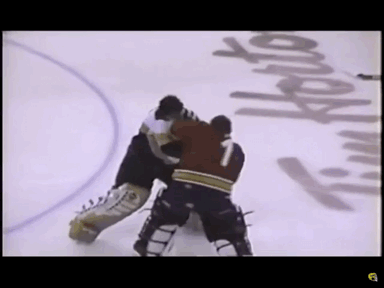
2: ‘Scooze me, I’m trying to stand here’ (Tristan Jarry)
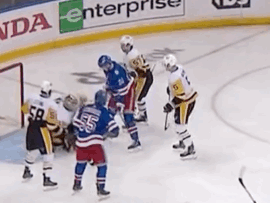
3: I don’t even know how he got that puck (Igor Shesterkin)

4: Marc-André Fleury and Calvin Pickard sharing a drink
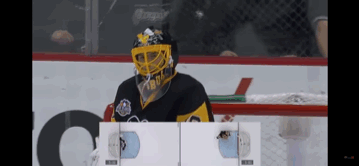

5: Should I just start calling these Marc-André Fleury appreciation posts?
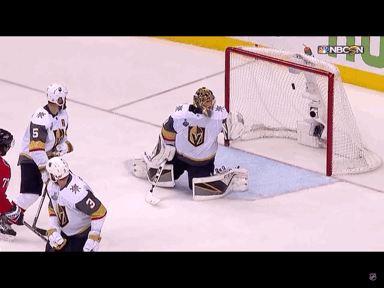
6: You are too late ref! The fights have begun, mwuhahaha (Ray Emery vs Braden Holtby)

7: Getting off the ice in style

8: As it turns out, my favourite saving move is called the Connor Ingram, as I’ve just decided (sliding split saves)
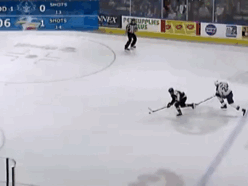
{part 7}
>part 8<
{part 9}
#nhl#ice hockey#big marshmallow men#goalies man#goalies are always great#goalies are precious#i love goalies#nhl gifs#ice hockey gifs#gifs#gif#goalies are the best#goalie appreciation#goalie love#Marc-André Fleury#Adam Russo#Tristan Jarry#Igor Shesterkin#Ray Emery#Braden Holtby#Connor Ingram#please enjoy#I tried my best#fights#Marc-André Fleury appreciation post#literally#nhl hockey#part 8
128 notes
·
View notes
Text
Ramblings: Updates on OEL and MacKinnon; PHWA Awards; All-Star Game – January 25
Late Tuesday night, the Anaheim Ducks got word that Ondrej Kase would be out for the season with a torn labrum. Recovery time could be as much as six months, which is significant, but it would also give him a couple months (hopefully) to train before having to head to Ducks camp.
I suppose this would be a good time to discuss Kase with more depth. Most data from Natural Stat Trick.
Put quite simply, you can make an argument he’s Anaheim’s most important forward, after Ryan Getzlaf. Since the start of the 2017-18 season, he’s second among the team’s forwards in points/60 minutes at five-on-five at 2.23, behind only Getzlaf (2.29). League-wide, his point rate ranks in the same tier of players like David Pastrnak, Sidney Crosby, William Karlsson, and Mark Scheifele. In terms of goals/60 minutes at 5v5, his mark of 1.37 is fourth in the league, trailing only Auston Matthews, Alex Ovechkin, and Viktor Arvidsson.
So, he’s produced a great point rate and elite goal rate over his last 96 games. That’s not all.
Kase makes those around him better. It’s not hyperbole, either:
Getzlaf with Kase: 68.1 shot attempts/60 minutes, 57.8 percent shot share
Getzlaf w/o Kase: 55.9 shot attempts/60 minutes, 50 percent shot share
Henrique with Kase: 57.9 shot attempts/60 minutes, 52.3 percent shot share
Henrique w/o Kase: 50.3 shot attempts/60 minutes, 44.7 percent shot share
The numbers are similar with Ryan Kesler, but the sample is also much smaller.
The Ducks generate about 7.1 more shot attempts per 60 minutes at 5v5 with Kase on the ice than without. They also allow about 5.3 fewer shot attempts per 60 minutes at 5v5 with Kase on the ice than without. In total, his shot share is about 5.5 percent higher relative to his team and driving the play to that rate quite literally puts him in the company of elite players like Patrice Bergeron and Sean Couturier.
It’s difficult to express how much losing Kase hurts. Rickard Rakell is still waiting for his shooting luck to turn, Jakob Silfverberg was plodding towards his usual 20 goals (though we’ll see if injuries catch up), and they’re still waiting for Corey Perry to return (though that may be soon). This team has had to endure significant injuries for basically the last two seasons but this is one that will be difficult to overcome given their difficulty to score as it was. Kase in under-appreciated by the league but I’m sure he’s not by his teammates. They’re going to need a Herculean effort from John Gibson and a big turnaround from Rakell over the final couple months to get to the postseason.
*
The initial update following Thursday’s MRI for Oliver Ekman-Larsson is that he’s day-to-day. We’ll know more next week.
*
Speaking of MRIs, Nathan MacKinnon also had one on his foot. Colorado is playing it safe right now.
*
Don’t forget that the 2019 Dobber Midseason Guide is available to help you through the stretch run towards a championship. The guide contains projections, category-specific players, and a whole lot more. There are also a lot of prospects and potential call-ups covered, so even those without a league title in their sights will find information quite useful for keeper/dynasty teams, or even looking ahead to next season. Get your copy in the Dobber Shop today!
*
The Professional Hockey Writers’ Association (PHWA) has released their midseason awards. If I’m not mistaken, this is the second year in a row they’ve done so. It’s just the normal awards we’re used to seeing at the end of the year, only with about a 50-game sample. It basically gives us something to talk about during the break. These were their choices (screen shots from TSN):
Let’s talk about a few of them.
Hart Trophy
I don’t have an issue with Nikita Kucherov winning the Hart Trophy. Anyone who is leading the league in points while playing for the best team in said league is a pretty good choice.
There are two interesting points here and one of them is Connor McDavid. I don’t think there’s an argument of how valuable he is to the Oilers; with him on the ice at even strength, the team has a +1 goal differential (56-55) and with him off the ice, they’re -19 (49-68). McDavid is a plus-1 despite the having an .894 save percentage behind him. Yes, he’s basically getting Chris Terreri circa 1988 goaltending and the team still has a positive goal differential with him on the ice. It’s absurd.
The second point of interest is John Gibson. January was a tough month for him, but the team would be absolutely nowhere close to a playoff spot without him. The Ducks have allowed the second-most high-danger chance at even strength this year, with only Chicago being worse. They’re allowing the fourth-most shot attempts as well. Anaheim is also the fourth-most penalized team. The Ducks are making Gibson’s life a living hell and he has them within striking distance of a wild card spot. If that’s not valuable, I don’t know what is.
Norris Trophy
I covered my thoughts on the Norris Trophy race yesterday. It’s going to be filled with guys posting points on playoff teams. But let us not forget HOTSAM BATCHO.
Selke Trophy
Centres are favoured over wingers but it’s hard to see Mark Stone not winning the Selke if he continues his current play. With Stone on the ice, the team allows nearly 12 fewer shot attempts compared to what they normally allow, which leads the league in this regard. Driving offence? Stone is second league-wide. It’s no surprise, then, that he’s running away in relative shot share league-wide. I know it seems like playing favourites for an exceptional player on a bad team but he’s almost always like this. He deserves, at the least, very strong consideration to win, with all due respect to both Patrice Bergeron and Aleksander Barkov.
Jack Adams
It was a sentiment pointed out on Twitter (I forget by whom) and I agree: how does Claude Julien not get into the top-3 for the Jack Adams? Was there a single person expecting this team to be top-3 in the Atlantic, ahead of the Bruins, and one point behind the Leafs at the All-Star break? I was very pessimistic on this team, thinking they would, at best, be a bubble team. Instead, they’re a team that can make some noise in the postseason. Claude Julien deserves a lot of credit.
What do you think about the awards, Dobber heads?
*
Yesterday I started a discussion on fantasy all-stars using the same format the NHL does. When you have very limited roster spots and need a player from every team, it’s not very easy. You can read that Ramblings here.
A quick recap of the parameters:
Standard Yahoo! scoring.
Four rosters, one for each NHL division.
Each roster contains six forwards, three defencemen, and two goalies.
Each NHL team must be represented
Today, we go west. We’ll talk about a player or two after.
Central Division
F – Nathan MacKinnon (COL)
F – Mikko Rantanen (COL)
F – Gabriel Landeskog (COL)
F – Ryan O’Reilly (STL)
F – Patrick Kane (CHI)
F – Blake Wheeler (WPG)
D – Jared Spurgeon (MIN)
D – Roman Josi (NSH)
D – Tyson Barrie (COL)
G – Pekka Rinne (NSH)
G – Ben Bishop (DAL)
There is no possible way to leave the Colorado top line off the roster. All of them. Currently, in standard Yahoo! leagues, in order listed above, they’re 1st, 4th, and 6th in fantasy value among skaters. All three are in the top-25 league-wide in scoring with Rantanen and MacKinnon both top-5 (including ties). No, you can’t leave them off any fantasy all-star roster.
Why add Tyson Barrie, then? Well, the Central has more flexibility than the other divisions because they have seven teams and not eight. He’s top-10 in fantasy value among blue liners and also top-10 in just points for defencemen.
Ryan O’Reilly
I know people like to poke fun at the fact that ROR left the Avs for the Sabres, then left the Sabres for the Blues (traded in both instances but it seems well-known he didn’t want to be where he was), only for the Blues to have a bad season. It seems unfair to blame that on O’Reilly, though, considering the Blues have a 60 percent goal share with him on the ice this year at five-on-five, which is astounding for a non-playoff team. He’s top-20 among all forwards in the league in goal share relative to his team, and aside from depth names like Ryan Reaves or Colton Sissons, that leaderboard is littered with a who’s who of top-end players like Crosby, Seguin, Benn, Radulov, Rantanen, MacKinnon, Aho, Palmieri, Pettersson, Draisaitl, and Oshie. O’Reilly is an elite player, full stop.
Pacific
F – Johnny Gaudreau (CGY)
F – Sean Monahan (CGY)
F – Elias Lindholm (CGY)
F – Elias Pettersson (VAN)
F – Clayton Keller (ARI)
F – Connor McDavid (EDM)
D – Drew Doughty (LAK)
D – Mark Giordano (CGY)
D – Brent Burns (SJS)
G – Marc-André Fleury (VGK)
G – John Gibson (ANA)
With Calgary’s top line, we run into the same problem as Colorado, just to a slightly less severe extent. All three members of Calgary’s top line are in the top-20 fantasy-wise. Matthew Tkachuk is up there, too and could replace either Monahan or Lindholm if you wish.
Special shout out to Doughty and Keller for filling the requirements.
Mark Giordano
I don’t think we are (and I use ‘we’ in reference to NHL fans) quite appreciating what Giordano is doing this season. He has 52 points this year. That’s the second-highest total of his career (56), and we just hit the All-Star break. Consider this:
Since 2001, there have been six instances of a defenceman having at least 50 point through his team's first 50 games. Three of those six instances are this season (Burns, Gio, Rielly) https://t.co/ARrAe39sYT
— Michael Clifford (@SlimCliffy) January 24, 2019
Pretty good!
More than that, Giordano is the oldest player to do it at the age of 35, in any era. The next-closest was Ray Bourque with 54 points in Boston’s first 50 games back in 1995-96 at age 34. This isn’t just a great season he’s having, it’s historic.
*
Just as a small aside, a lot of my writing over the last two years (well, like 20 months-ish) has been focused on defencemen. We started seeing the revolution from the blue line a few years ago and now it seems to be in full swing. Guys who can’t move the puck from the back end just don’t last in the league anymore. Not only is being able to make the first pass crucial, but knowing which first pass to make (to the boards, to the middle, back to your support, or a stretch pass) and jumping up in the rush are seemingly more important than ever. I’m going to take the weekend and pore over this a little more and come back with Tuesday’s Ramblings shining a bit of light on this development over the last four or five seasons.
from All About Sports https://dobberhockey.com/hockey-rambling/ramblings-updates-on-oel-and-mackinnon-phwa-awards-all-star-game-january-25/
0 notes
Text
After Two Weeks of Hell, the Penguins-Senators Game 7 Was Phenomenal
For six games, the Pittsburgh Penguins and the Ottawa Senators made you wish you were dead.
Sidney Crosby. Erik Karlsson. Evgeni Malkin. Mike Hoffman. Phil Kessel. Craig Anderson. All talented individuals capable of rising above the fray and inspiring children to pick up hockey and make it their craft, but because of mysterious elements no one will ever be able to pin down (cough cough Guy Boucher), the first six games of the Eastern Conference Finals could be deemed torture under the Geneva Convention.
Then, Game 7.
Holy shit. Has anyone ever been so painfully bored for so long only to be rewarded with such an exquisite conclusion as that? I don't even know what the pop-culture equivalent is so I can do a bad Bill Simmons impression. Has the series finale of a show ever exceeded everything that preceded it like this? Has anyone ever had a bad blackjack run only to have it end with splitting 8s a bunch of times with the dealer busting for J-Bug?
Thank god. Photo by Charles LeClaire-USA TODAY Sports
Name a television show with a great final episode. No way the episodes that came before it were as bad as the six games that led to Game 7. What about a horror movie with a crazy twist at the end? Nothing compares to the two weeks of hell we went through to get to the Chris Kunitz double overtime winner Thursday night.
Maybe if you hated The Usual Suspects but still appreciated the killer ending, then this series has an equal, but come on. That movie kicks all the ass, so close this window and go back to having terrible opinions somewhere else.
This Game 7 had everything you'd want, unless you're a Senators fan or you bet on the Senators or the over, but then you should know nothing contained in this space pertains to you. I'm sorry. While I am sympathetic to a team letting you down or gambling not working out, this column is an independently objective view of a double overtime conference final Game 7, which was phenomenal.
Remember the first periods of this series before Thursday? No, no, take away that barrage by the Senators in Game 4 when Marc-André Fleury was giving away goals the way the NHL gives away outdoor games to the Chicago Blackhawks. All the other first periods. The ones with all the stoppages for offside and the dump-ins and chip-outs and shots from a great distance that were easily seen and stopped. The first periods that made you flip to the NBA playoffs, baseball, or reruns of Friends.
The first period of Game 7 was orgasmic, if not literally then at least in comparison. There were seven minutes of play uninterrupted by a whistle of any kind. No one froze the puck or shot it into the stands. Offside? Icing? No way, no how. There was flow, the thing that every hockey fan wants in a game, even if they don't know it. It was back and forth and wonderful, despite the fact there were no goals in the first 20 minutes.
Was it the greatest first period in hockey history? Of course not. But it was the craft beer tossed to a parched person after a lifetime of Bud Lights. Everyone earned that extra hoppy IPA brewed by monks on a mountainside in Tibet.
Then, the second period.
Kunitz nails it. Photo by Charles LeClaire-USA TODAY Sports
By this point, it's fair to say we all thought the Penguins had this. They were the better team through six games, and while a goaltender like Anderson can steal a game, it felt like only a matter of time. So when Kunitz buried that two-on-one chance, it felt like justice. It felt right. It was 1-0 Penguins.
And before they could announce the goal in the arena, Mark Stone buried a pass from Karlsson to the tie the game. There would be no holding on for dear life. We would not be subjected to Matt Cullen sliding to block shots for 30 minutes. We would continue to have a hockey game, the thing we deserved after six nights of suffering.
Stone's goal was bad for the Penguins but good for everyone else.
Here's the thing about playoff hockey: referees are terrible. Actually, "terrible" is too kind a word. They are something worse than that. There is no word in any language that conveys their level of incompetence, a level that sank even deeper when the Senators were caught with six skaters on the ice in overtime but either no one saw it or no one had the balls to call it. With NHL referees, it's hard to tell.
Entering the final 20 minutes of regulation, the Senators had both power plays during the game, so we all quietly understood that the Penguins were getting their make-up call at some point. It was only a matter of when and how, but in the third period of a tie game, it had to be a blatant penalty.
Then Phil Kessel saved the day.
On a dive that would have made Greg Louganis proud, Kessel fell to the ice from some moderate contact by Dion Phaneuf. At the very least, this should have been a situation where both players went to the penalty box for interference and diving, but since the Penguins had zero power plays up until this point, Phaneuf was sent to the box while Kessel got away with the crime of the century, or at least of the playoffs.
And, of course, the Penguins scored to make it 2-1.
That goal, by Justin Schultz, didn't decide the game, but it should be evidence that diving is good. Referees are cowards, more so in Game 7s. They don't want to call penalties. You can get away with anything in a Game 7. So with the timing right, Kessel earned the Penguins a chance to win the game in the third period, and all that was at risk was a warning (gasp!) from the NHL or a $2,000 fine.
Can you imagine not diving in that situation? It's either no call or a potential power play that could send you to a Stanley Cup Final. If you don't dive, you should hand in your uniform and skates. Who in the world wouldn't trade $2,000 for a chance at a Stanley Cup? It was beautiful and Kessel deserves all the credit for executing the ruse to perfection.
When the hockey is good. Photo by Charles LeClaire-USA TODAY Sports
Then a few minutes later, Ryan Dzingel made the point moot by tying the game and sending it to overtime. It should be noted the goal was the result of Karlsson's 16th assist and 18th point of the playoffs. While Kyle Turris was getting all the praise on NBCSN for whatever he did by the boards, Karlsson's shot through traffic to hit the post was the biggest reason Dzingel had the greatest moment of his NHL career.
No one is advocating that Karlsson should win the Conn Smythe Trophy with his team going only three rounds … but maybe? Is it really coincidence that an overmatched Senators team hung around for seven games and Karlsson had the primary assists on both of his team's goals almost immediately after both Penguins goals? He deserves it more than Sidney Crosby did last year. At least consider it.
Then it was Kunitz in double overtime. Broken down, borderline useless throughout the regular season Kunitz. He was basically the henchman at the end of Die Hard coming out of nowhere with the gun, except he got his shots off and instead of killing the good guys, he killed the most boring team in NHL history. He's a hero!
This series should inspire you. It should help you achieve your dreams. Are you down? Despondent? Convinced that the next day will be as bad as the next? Are you sure that no matter what happens, your life will be as boring and unfulfilling as the conference finals between the Penguins and the Senators? Well, let Game 7 give you hope.
If Game 7 can be this amazing after six games of needles in your eyeballs, maybe you can do that thing you have always wanted to do. If Kunitz can score two goals in a Game 7 after scoring none in the first 13 games of the playoffs, then maybe you can realize that dream of whatever it is you want to do.
At the very least, you should be smiling from ear to ear because you don't have to watch the Senators anymore.
Want to read more stories like this from VICE Sports? Subscribe to our daily newsletter.
After Two Weeks of Hell, the Penguins-Senators Game 7 Was Phenomenal published first on http://ift.tt/2pLTmlv
0 notes